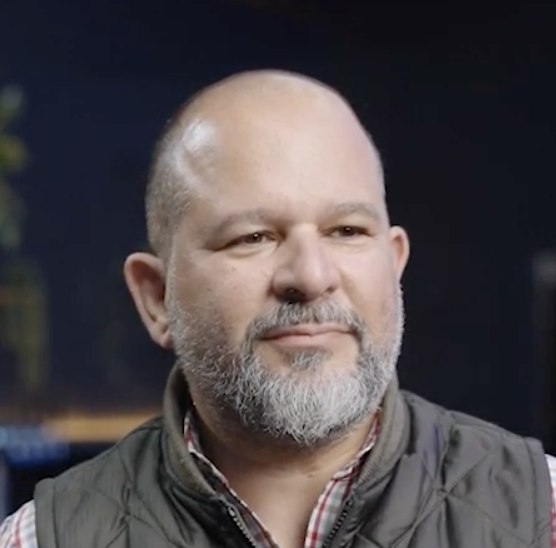
Diamonds in the Rough
Diamonds in the Rough
Eight years ago, I had the opportunity to interview Billy Beane, the General Manager of the Oakland A’s. Beane was a professional baseball player who transitioned into the A’s front office and made a name for himself by using data to identify and recruit undervalued players – transforming the A’s roster in spite of its famously low player payroll. If this sounds familiar, it might be because his story is chronicled in the Oscar-nominated film, Moneyball, where Beane is played by Brad Pitt.
My conversation with Beane focused less on the data-driven decision making that drove his success and more on the not-so data-driven decision making behind his early career. He was drafted in the first round of the MLB as a coveted pick. But Beane turned out not to be nearly as good a player as coaches and club owners thought he would be.
To hear him tell it, his appeal to recruiters had almost everything to do with looking the part. All-American looks. Chiseled jaw. Square shoulders. Successful college performance. He walked and talked like a successful baseball player. But as he explained in very personal terms, his career as a player didn’t pan out as expected. The coaches, recruiters, and owners were wrong.
Baseball recruiters aren’t the only professionals who over-index on pedigree. The VC community does it too. In the case of tech, pedigree takes the form of the schools you went to and the companies where you worked.. Much like baseball, in tech it often comes down to whether or not you look the part.
One of our superpowers at super{set} is that we don’t get caught up in our knickers on matters of pedigree. If anything, fancy schools and inflated professional claims usually send us running in the opposite direction.
I’ve sat in classes at Harvard and boardrooms with Stanford fancypants, whom everyone mythologizes, and I can tell you firsthand that, with a few notable exceptions, they’re just not all they’re cracked up to be.
If we flush the traditional markers of a strong hire, how do we think about talent? How do we discern it? How do we stay out of the wrong-headed patterns that trapped Billy Beane’s early boosters?
There are necessary conditions for success. You need a certain level of training and experience. You need context in the relevant space. You have to have done your 100 push-ups. But from there, we’re making sense of a sea of noisy, frequently conflicting, highly subjective signals.
We’ve been at this a while and we think we’ve gotten pretty good at picking up on the qualities that translate to success in an early stage startup.
Others look for winners. We look for people with a chip on their shoulder and something to prove.
VCs love winners. When you think about it, that’s a perfectly reasonable risk management strategy. The trouble is that winners have frequently made big money, and it’s hard to not let that go to your head. Everyone who has been in entrepreneurship long enough has seen it many times before – the CEO with an exit who becomes intolerably arrogant and much too certain of his own infallibility. He doesn't know what he doesn't know. They become 100% certain of every one of their opinions and lose sight of the fact that success in entrepreneurship always entails at least a little luck.
Here’s what gets us excited: a person with an entrepreneurial mindset who has maybe taken a swing or two, but not yet hit a homerun. Why? It shows the right risk attitude if you’re raising your hand to have another go, and it shows you’re open-eyed and persistent enough to take another shot. You’ve faced adversity but you’ve dusted yourself off and gotten back in the game.
Others look for named institutions. We look for grit.
Speaking of adversity, at super{set}, we’re always looking for grit. I’m a little bit interested in the schools you attended; I’m much more interested in your back story. Were you born on third base and convinced you hit a homerun, or did you lift yourself by your bootstraps?
One of the reasons we love immigrants so much is that immigrants’ family story usually entails a commitment to hard work and the American Dream. They’ve got a point to prove. We’re looking for people who can take a punch and don’t turn their tails and flee when the going gets rough, as it always does in a startup.
Others look for a stacked resume. We look for homegrown heroes.
Two decades ago it was Oracle. These days it’s Google. I’m talking about the golden employer that everybody wants on their resume. It’s good training, depending on your role, but it’s not a reliable indicator of performance in a startup. Why? Your number one job when you’re working at one of those huge companies is to not f&*k up what’s already been built by other people. You’re usually not making big moves that materially change the product, revenue, or customer trajectory.
The difference between working at an already established tech company and working for an early-stage startup is the difference between knowing how to drive a professional Formula 1 race vs. knowing how to build a Formula 1 racecar’s engine. They’re not the same. In many cases, there are not-yet-famous people hiding in plain sight who can step into larger roles. They’ll do it with more institutional knowledge, more support from their co-workers, a higher capacity to learn fast, and much less ego.
Others look for lone wolves. We look for pack animals.
The era of the lone-wolf entrepreneur is over. The problems got too complicated and the clock-speed required to solve them much too steep for any one brain to do it alone. Your hard skills are important, but they don’t mean much if you can’t play well with others.
There are a lot of factors that go into what makes a good collaborator, but I think the most important one is this: can you suppress your own ego in the service of a broader cause? Do you need to take the winning shot, or do you see your team’s success as your own? If you can, you’re in a better position to actively discern what other people are good at and then enroll them in your solution.
My co-founder Vivek is one of the smartest people I know. The man can go deep, he can go broad, but what makes him uniquely good is his ability to #BeHumble. He is comfortable enough with himself to realize when somebody else in the room knows more than he does. He never sees this as a threat – in fact he’s giddy whenever it happens. He rightly identifies it as an opportunity to ask smart questions and learn from somebody else. Company-building is, at its core, a team sport.
Others look for high IQ. We look for obsessive intensity.
Einstein never took an IQ test. Estimates of his IQ are as high as 160 and as low as 135, which are above average for sure , but they hardly correspond to the searing brilliance of his work. What gives? Einstein’s intelligence, it turns out, was in his ability to latch onto a problem and obsess over it.
Calm persistence, verging on obsessiveness, is also exactly what’s required to succeed at an early-stage startup. Being fast and smart is useful, but it matters less if you don’t have the sticktoitiveness and attention-focusing required to solve the hardest, coolest problems. If your first waking thought in the morning and the last conscious one you have before going to sleep at night center on a single company-building puzzle, and you obsess over it for weeks or months, I’ll bet on your odds of success over 30 minutes from a supergenius every time.
If you’ve read this far and this sounds like you or someone you know, super{set} is hiring.
Tech, startups & the big picture
Subscribe for sharp takes on innovation, markets, and the forces shaping our future.
Let's keep in touch
We're heads down building & growing. Learn what's new and our latest updates.


